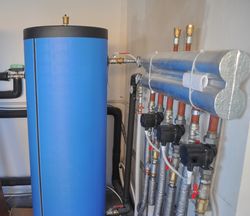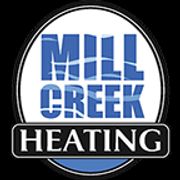Curious About Geothermal Heat Pumps? Review These FAQ

Are you ready to invest in a new heat pump for your home? Geothermal energy is one of the most energy-efficient and eco-friendly solutions on the market. Here, Mill Creek Heating of Turner, OR, answers four frequently asked questions about geothermal heat pumps to help you make an informed decision.
4 FAQ About Geothermal Heat Pumps
What Are They & How Do They Work?
Geothermal pumps use the earth’s natural heat to warm your home’s air and water supply. Through a system of underground pipes, these pumps absorb heat from the earth and transfer it into your home. Since the ground’s temperature stays relatively consistent, geothermal pumps are one of the most efficient and effective ways to heat a home.
What Is the Difference Between Open & Closed Loops?
 There are two main types of geothermal systems—closed and open loop. Closed loops transfer heat via pressurized pipes embedded in the earth’s crust. Open loops use a similar pipe system to transfer heat via well water. Both have their advantages, as open loops are valued for their low installation cost and closed loops are known for being low-maintenance.
There are two main types of geothermal systems—closed and open loop. Closed loops transfer heat via pressurized pipes embedded in the earth’s crust. Open loops use a similar pipe system to transfer heat via well water. Both have their advantages, as open loops are valued for their low installation cost and closed loops are known for being low-maintenance.
How Much Do Geothermal Heat Pumps Cost?
There are many factors to consider when it comes to the cost of geothermal heat pump installation. The best way to gauge the expense is to ask for an estimate from your heating and air conditioning contractor. In addition to the cost of materials and installation services, factor in possible tax credits, utility savings, and the system’s life span.
What Are the Main Benefits of These Systems?
While geothermal heat pumps cost more upfront, you’ll immediately notice returns on your investment in the form of reduced heating costs. These heat pumps also minimize carbon emissions, have life expectancies of up to 50 years, and increase property resale value.
When you’re ready to upgrade your heating and air conditioning system, look into geothermal energy from Mill Creek Heating. Give them a call at (503) 749-1000 today to speak with a helpful representative about investing in heat pumps. You can also visit them online to learn more about their services.
About the Business
Have a question? Ask the experts!
Send your question

